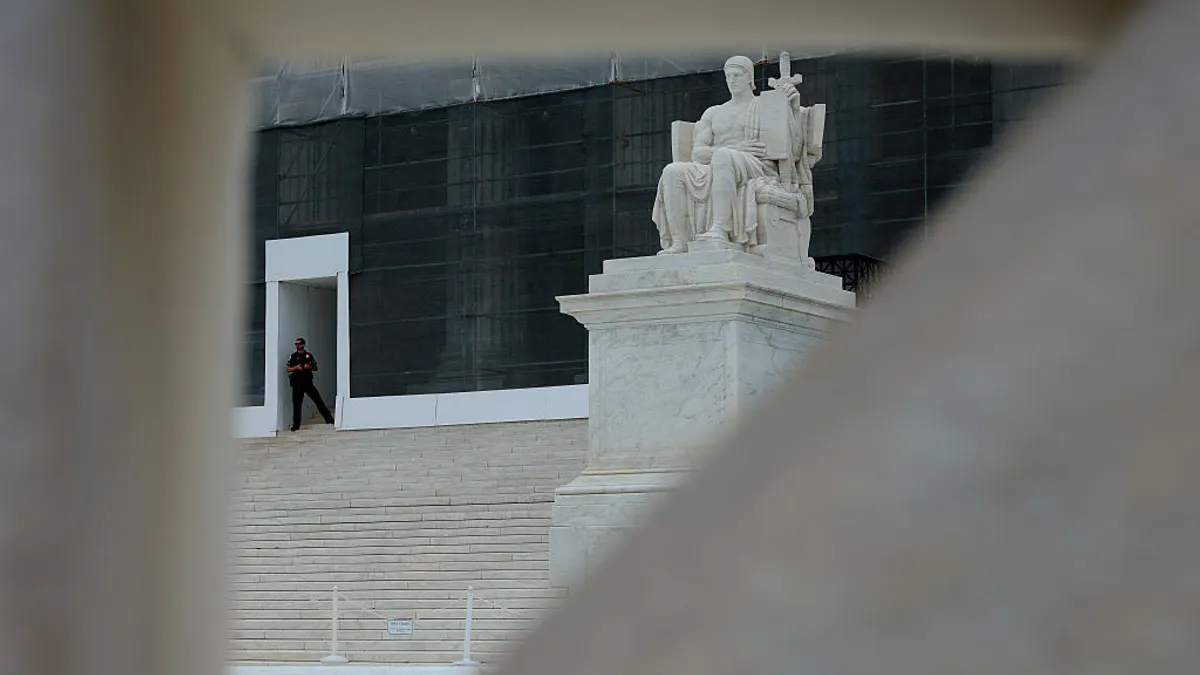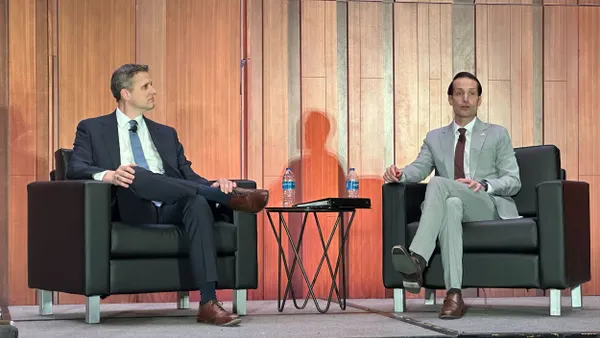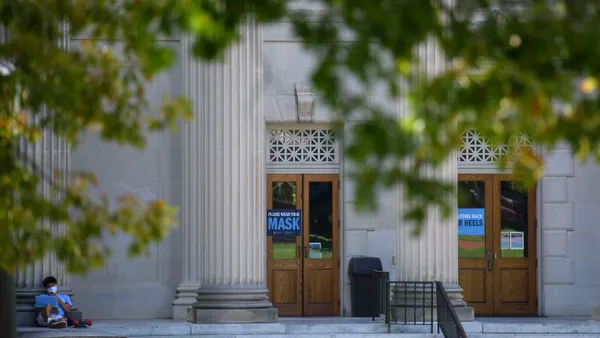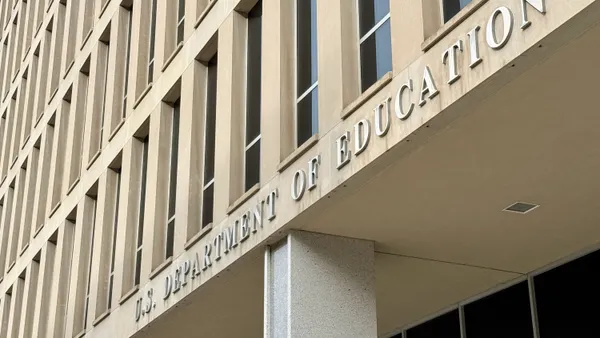Dive Brief:
- The U.S. Supreme Court on Thursday dealt a blow to universities and other research institutions seeking to restore grants cut in mass by the National Institutes of Health.
- Researchers, unions and associations sued NIH this spring after the agency abruptly terminated millions of dollars in grants for projects that dealt with diversity, equity and inclusion.
- In a 5-4 decision, conservative justices on the Supreme Court paused a June order that would have restored $783 million in funding, ruling that the district court lacked jurisdiction to handle the grant restoration. However, the court declined to block the lower court’s order that deemed NIH’s guidance that led to the cuts illegal.
Dive Insight:
With the Supreme Court decision, those who have seen grant funding cut by NIH could face a longer, more complicated path through another federal court to have their awards restored.
In their April complaint, plaintiffs accused NIH of “launching a reckless and illegal purge to stamp out NIH-funded research that addresses topics and populations that they disfavor.”
They tallied 678 terminated projects resulting in $1.3 billion already spent by the government on projects “stopped midstream” being wasted, and another $1.1 billion that had yet to be spent.
When U.S. District Judge William Young ruled against NIH in June, he blasted the agency for what he saw as discrimination, both racial and against LGBTQ+ communities, in its purge of research funding.
“Have we no shame,” said Young, a Reagan appointee, according to a report from The Associated Press.
Earlier this month, the watchdog agency U.S. Government Accountability Office also determined that NIH acted illegally in its DEI cuts.
The Supreme Court did not block Young’s ruling that NIH’s guidance that led to the agency cutting DEI research funding was illegal. That ruling is still being litigated in appellate court.
Instead, the ruling majority determined that the U.S. Court of Federal Claims — which hears monetary claims against the federal government — is the venue for handling terminated grants.
Massachusetts Attorney General Andrea Campbell, who has been active in fighting the Trump administration’s various moves to cut federal research funding, blasted the Supreme Court’s ruling on Friday.
“The Supreme Court’s decision is wrong and deeply disappointing,” Campbell said in a statement. “Even though the Court did not dispute that the Trump Administration’s decision to cut critical medical and public health research is illegal, they ordered the recipients of that funding — hospitals, researchers, and the state — to jump through more hoops to get it back.”
The Supreme Court’s split decision brought internal dissent as well. In a minority opinion, Chief Justice John Roberts, who joined the court’s liberal justices, wrote that “if the District Court had jurisdiction to vacate the directives, it also had jurisdiction to vacate the ‘Resulting Grant Terminations.’”
In a separate dissent, Justice Ketanji Brown Jackson rebuked the majority’s opinion.
“By today’s order, an evenly divided Court neuters judicial review of grant terminations by sending plaintiffs on a likely futile, multivenue quest for complete relief,” she wrote, adding that the court “lobs this grenade” without considering Congress’ intent or the “profound” consequences of the ruling.
“Stated simply: With potentially life-saving scientific advancements on the line, the Court turns a nearly century-old statute aimed at remedying unreasoned agency decisionmaking into a gauntlet rather than a refuge,” Jackson said in the dissent.
Clarification: This article has been updated to clarify the nature of the Supreme Court decision.















